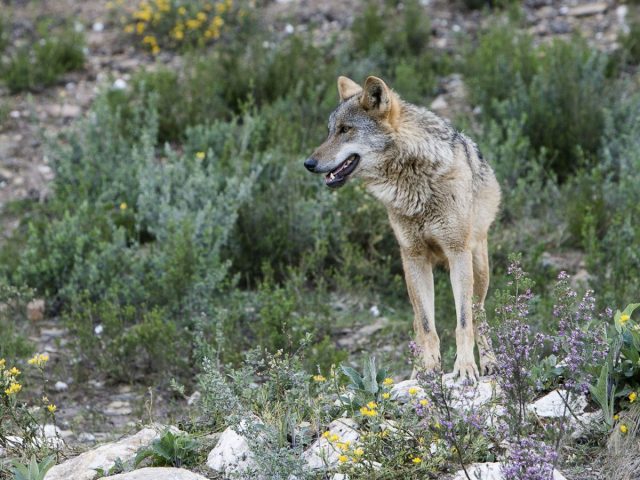
With a scarce difference of a couple of weeks, the Court of Justice of the European Union has ruled two judgments on the protection of wolves. In the first one, a blend of EU law plus an expansive interpretation on behalf of the Luxembourg judges has already made it very difficult for the Tyrolean administration to protect its farmers.
Now, on 29 July, the Union tribunal again opposes former measures coming from Castile and Leon’s centre-right government to protect cattle in Spain and sides once more in favour of wolves. The rapporteur has been the same in both cases.
The facts are as follows: Between 2019 and 2022, the regional Government allowed for the hunting of 339 wolves. Immediately afterwards, the Association for the Conservation and Study of the Iberian Wolf (ASCEL) challenged the regional Government and the matter reached the High Court of Justice of Castile and Leon in Valladolid.
On 30 June 2022, this Court asked the Court of Justice of the European Union on the compatibility of the Spanish measures with the EU Habitats Directive, which awards for a double standard protection of wolves, namely, the possibility of a so-called strict protection, where no hunting is permitted except by way of exceptional derogation, or else a general protection, where hunting could potentially be regulated.
It must be borne in mind that even under the general regime of protection for wolves and other species, the EU Court interprets it as rather allowing for a restriction of hunting than an amplification of same. This constitutes a difficult first hurdle for the protection of cattle that should be tackled in the future, obviously by legislative revision; the currently privileged status of wolves granted by EU secondary law makes hunting, in the interpretation of Union judges, a lesser evil to be minimised in the best case scenario.
Be that as it may, let us go back to the referred judgment. According to a report filed by the Spanish Socialist-Communist Government with the European Commission, the conservation status of the wolf population between 2013 and 2018 was deemed as poor and unfavourable in the three different geographical areas of Spain where wolves can be found, which include the region of Castile and Leon.
Since the regional Government had not taken that report into account when designing its measures for hunting wolves, the CJEU considers them to be incompatible with the Habitats Directive.
Perhaps a different ruling would have taken place had the Spanish national Government report on the conservation status of the wolf population been more favourable – a scenario not to be discarded in the future, if the hunting of wolves is further blocked. The Court would always require that no doubt or risk as to the short, medium and long term of the wolf population is incurred, but as farmers know, there are far two many specimens stalking their poor sheep and even human beings have at times been menaced by the canes lupi.
A second package of legislative measures to avoid new pro-wolf judgments should be envisaged, this time not just in Brussels, but also at national level. In the case of Spain, the left-wing Government has passed a Ministerial Order of 2021 declaring that wolves are under the strict level of protection in the whole of the country; that is, it goes beyond the standard level of protection previewed by the Habitats Directive. There is no reason why that should continue to be the case.
What is striking in the whole affair is that not one single line in the judgment is dedicated to balancing the measure of protecting wolves to saving cattle; as if the primary sector in the European Union did not merit any regard whatsoever.
Source of image: El Confidencial



 Subscribe
Subscribe